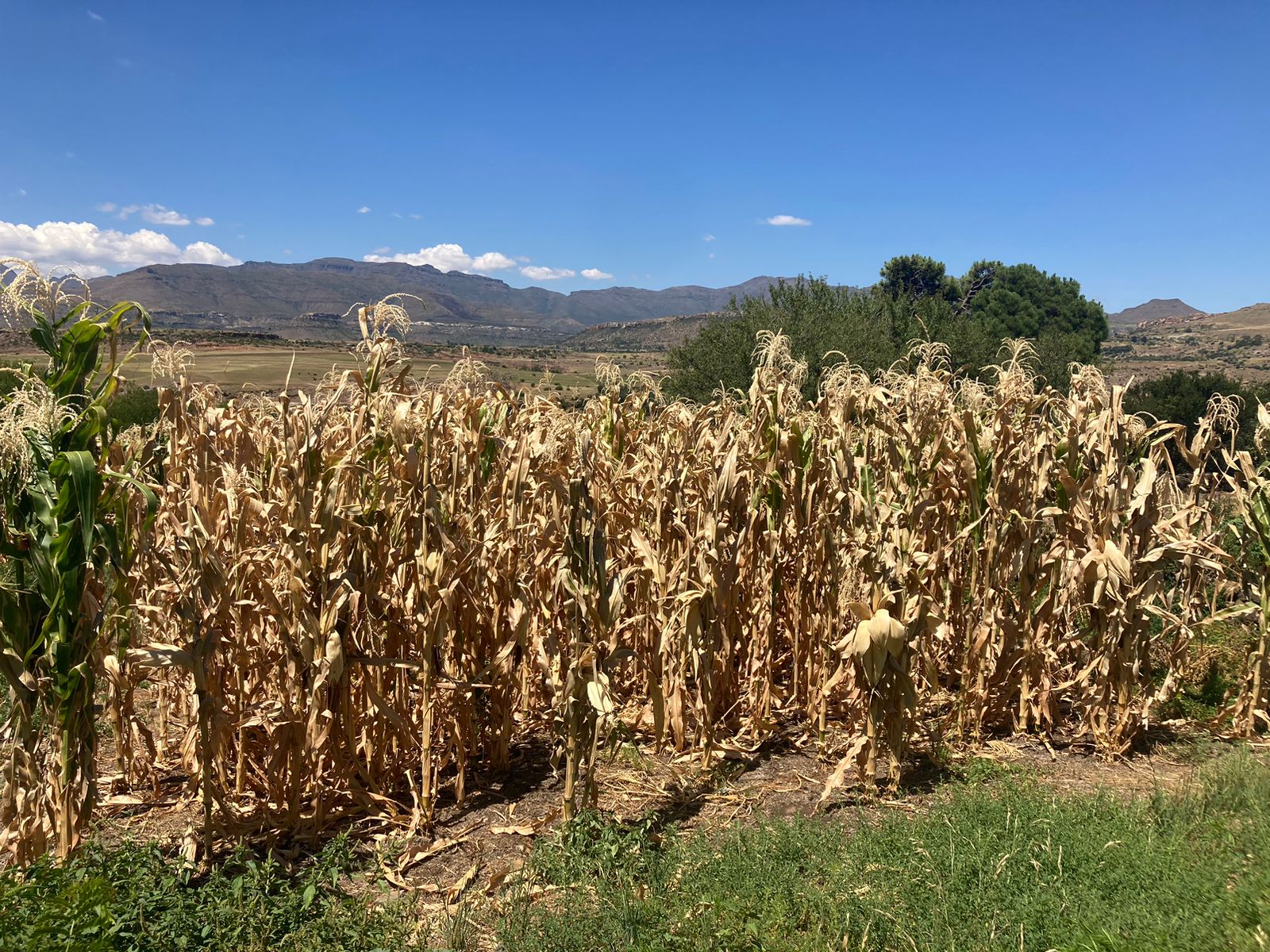Lerato Matheka
Following the severe El Nino drought that affected Southern Africa, including Lesotho, from December 2023 to March 2024, the country is rappling with a significant food insecurity crisis.
The drought resulted in poor rainfall, leading to substantial crop failures despite initially promising conditions.
Recent assessments indicate that approximately 700,000 Basotho are currently faced with food shortages, up from 582,000 the previous year.
In response to this crisis, the Government of Lesotho has declared a National Food Insecurity Disaster from July 12, 2024, to March 31, 2025. To mitigate the impact, the government has allocated M200 million to assist affected families through various programs, including community improvement projects and poverty alleviation initiatives such as “Tsoha U Iketsetse” and “Lesupa Tsela.”
Amid this challenging backdrop, the Minister of Agriculture and Food Security (MAFS), Thabo Mosofi, announced the ministry’s Intensive Crop Production (ICP) subsidy program for the 2024/2025 financial year.
This initiative, he said, aims to enhance grain and vegetable production, improve food security, and reduce poverty, thereby decreasing the country’s reliance on emergency support and food imports.
Mofosi announced in the National Assembly that the objectives of the Intensive Crop Production Program included:
- Increase Crop Production: Boost overall agricultural output in Lesotho.
- Reduce Fallow Land: Minimise unused arable land.
- Increase Farmer Participation: Encourage more farmers to actively engage in crop production.
- Promote Soil Conservation: Implement practices that maintain and improve soil fertility.
He indicated that the government of Lesotho has allocated M294,405,343.00 to his ministry for the ICP program.
“Of this, M223,644,590.00 is designated for procuring agricultural inputs. The subsidies provided under the program include an 80% subsidy on fertiliser, a 70% subsidy on seeds and pesticides, and a 50% subsidy on combined harvesting.”
Mofosi noted that the approach to the Subsidy Program would see farmers accessing agricultural inputs and receiving support towards harvesting.
“Inputs will be distributed to district warehouses where registered farmers can access them,” he said, advising that farmers must register their fields with Resource Centres and have their fields digitised before obtaining agricultural inputs.
“The Ministry will profile farmers by location and production scale to ensure efficient resource allocation,” he said.
He added that block farmers registered with their district agriculture offices would receive priority during harvesting.
“Combined harvesters will be dispatched based on the area planted per district to ensure timely harvesting and prevent crop loss,” he indicated. “While agricultural machinery is essential for optimal production, there is a shortage of equipment among farmers.”
“To address this issue, the government will continue subsidising machinery purchases through Lesotho Post Bank.
“In the current financial year, the government plans to buy two additional combined harvesters and two maize headers to support farmers during harvest time,” the minister said, adding that his ministry would provide extension services and facilitate the availability of agricultural machinery.
“Farmers will receive assistance with calibrating planters and sprayers before the planting season, ensuring optimal plant population and weed control. Additionally, the Ministry will subsidise specialised machinery services at a rate of 50%.
“Stressing the importance of producing to consume, Mofosi further indicated that to enhance market access for farmers, the Ministry of Agriculture would organise opportunities for them to sell their produce to millers and other potential buyers.
“This initiative aims to create a reliable market for farmers, ensuring fair prices for crops and encouraging continued agricultural production.
“In light of the food insecurity crisis, Mofosi noted these measures are crucial to stabilising the agricultural sector and ensuring Basotho have access to sufficient food.
“The collaboration between the government, international partners, and local communities is essential in overcoming the current challenges and building a more resilient agricultural system for the future. As emphasised by the Prime Minister, all stakeholders need to work together during this period of declared food insecurity disaster to provide the necessary support and resources to those in need.
Summary
- The subsidies provided under the program include an 80% subsidy on fertiliser, a 70% subsidy on seeds and pesticides, and a 50% subsidy on combined harvesting.
- “In the current financial year, the government plans to buy two additional combined harvesters and two maize headers to support farmers during harvest time,” the minister said, adding that his ministry would provide extension services and facilitate the availability of agricultural machinery.
- “The collaboration between the government, international partners, and local communities is essential in overcoming the current challenges and building a more resilient agricultural system for the future.

Your Trusted Source for News and Insights in Lesotho!
At Newsday Media, we are passionate about delivering accurate, timely, and engaging news and multimedia content to our diverse audience. Founded with the vision of revolutionizing the media landscape in Lesotho, we have grown into a leading hybrid media company that blends traditional journalism with innovative digital platforms.









